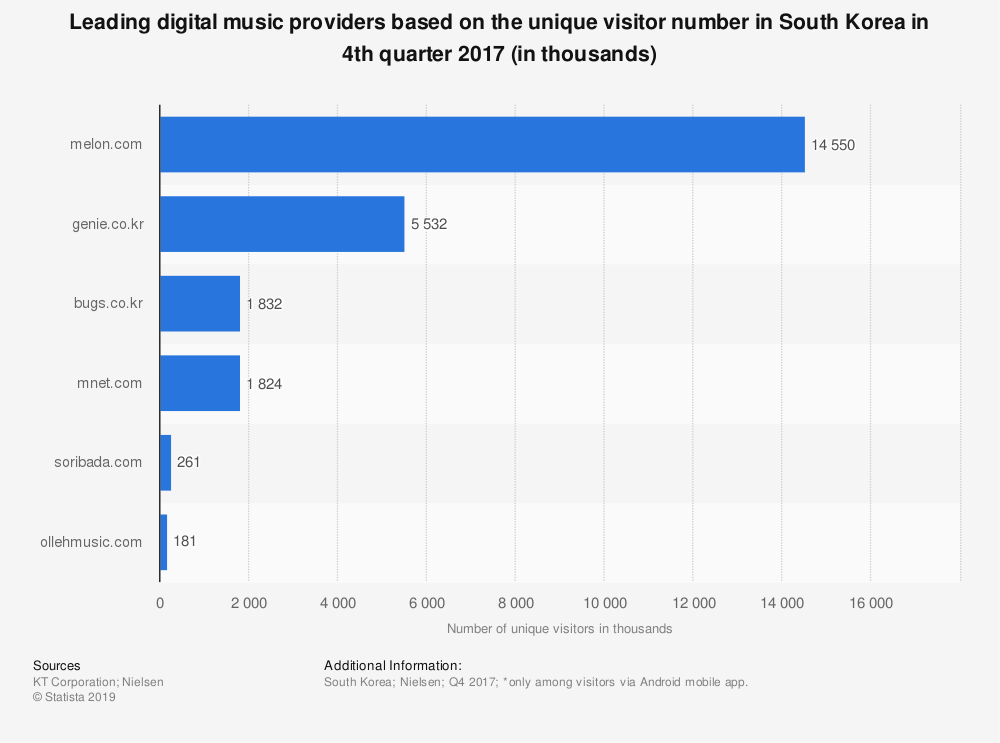Since the establishment of the modern Korean pop music industry in the early 90s, there has been a market oligopoly. Three main companies often referred to as, “The Big Three”, are recognized as the creators of the three-tier entertainment system (Shin and Kim 226). These companies are: Jin-Young Park Entertainment or JYP, Yang Goon Entertainment or YG, and Star Museum Entertainment or SM. The founders of each company have previously worked in the Korean music industry as successful artists. Yang Hyun-suk of YG Entertainment, for example, was part of the hip-hop dance group Seo Tai-ji & Boys, noted for creating dance idol-oriented music (Herman, 2017).
Arguably these large Korean entertainment houses have significant roles not only in creating and developing the market for K-pop but also in reshaping the overall market for Korean popular music (Shin and Kim 258). Korean entertainment agencies actively scouting their future acts to train and develop their skills.
There is also a music streaming platform difference in South Korea, as there is a greater variety of digital music providers. In 2017, melon.com was the leading music streaming service accounting for 14.55 million unique visitors, followed by genie.co.kr with 5.532 million unique visitors (Fig.2). Nevertheless, By looking at the music chart data published by online music streaming service (Fig. 1), Melon Music you can conclude that there is a domination of Korea’s domestic music market by the main ‘Big Three’ agencies. The data is organized annually in order of song popularity, the calculated average weight of national record sales (70 %), and media appearance of the song (30 %) (Shin and Kim 269). The data showing an overall increase in the consumption of Dance & Hip-Hop music, as a greater percentage of the bar graph is shaded. The line graph overlapping, demonstrating “The Big Three” holding a significant percentage of the Dance & Hip-Hop sales. While the timeline is until 2012, the data describes the market prejudice for smaller companies.


Big Hit Entertainment was founded in 2005 after the CEO, Bang Si-hyuk, broke away from JYP to establish his own company (Bruner, 2019). Prior to Big Hit Entertainment’s debut of BTS they only signed: 8Eight, 2AM a joint management group with JYP, and GLAM. However, they were nearing bankruptcy after the disbandment of GLAM and 2AM (Kim, 2017). Bighit Entertainment remained a small company with limited influence in the domestic Korean market. As a result, BTS was placed at a disadvantage compared to artists from bigger agencies. The group had fewer financial resources, due to prior failing artists, and could not outsource international producers or choreographers. Instead, they produced and wrote own music since their debut, which led to the production of a musical message that challenged boy-band and K-pop norms.
Their music criticizes the Korean educational system, materialism and the media, and the Korean social structure which benefits the older generation (Jung, 2018). The incorporation of societal criticism in Korean popular music is attributed back to Seo Tai-ji & Boys. This 90s group is said to be not only the originators of societal criticism but also the beginning of modern k-pop.
Seo Tai-ji, the frontman and songwriter of the group claimed BTS as the his successor for the continuation of depicting struggles of Korean youth (Herman, 2017). To signify his claim, BTS was invited to be guest performers for Seo Tai-ji’s 25th Anniversary Time: Traveler concert and given rights to re-released the 1995 hit song “Come back home”.